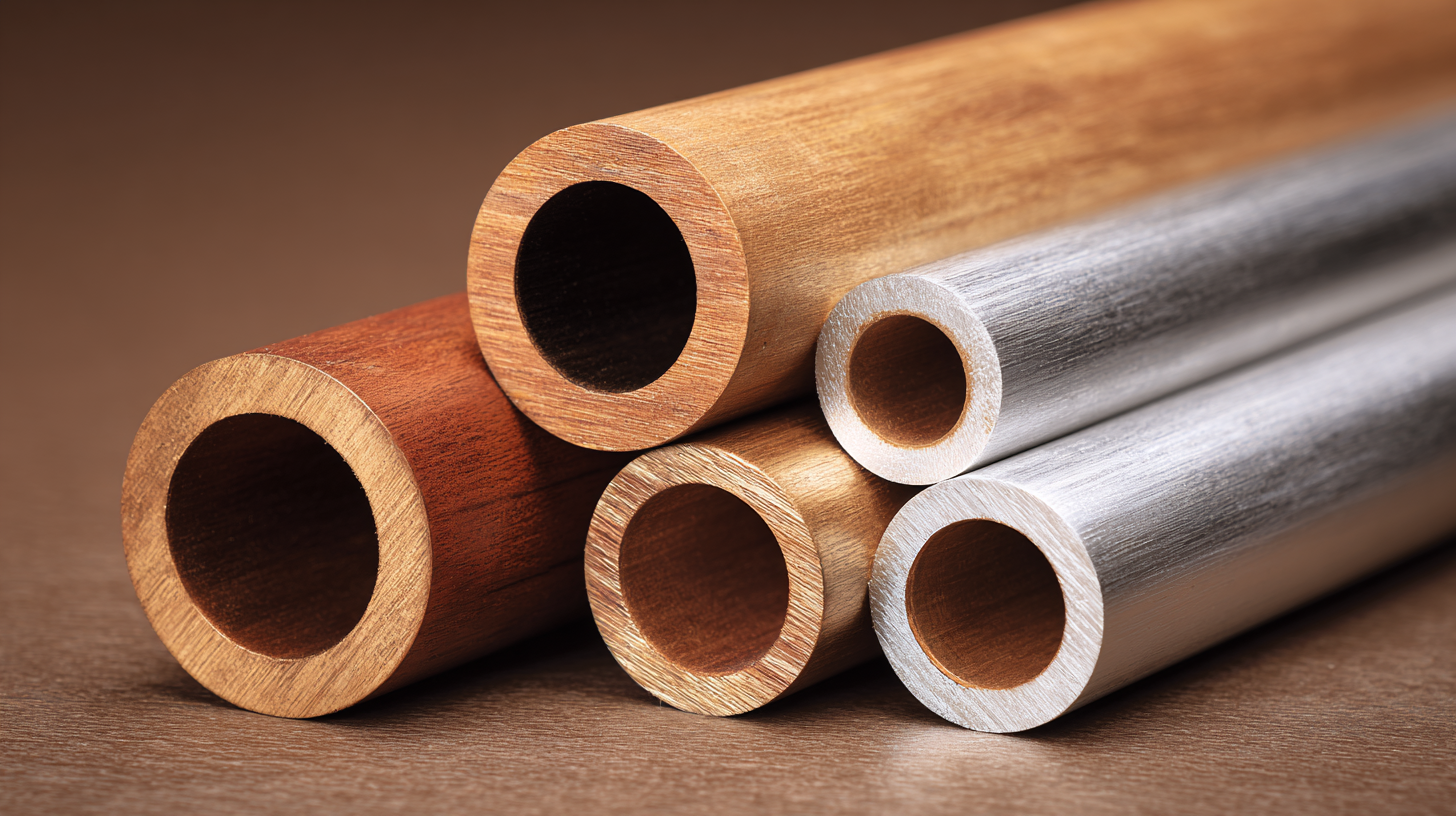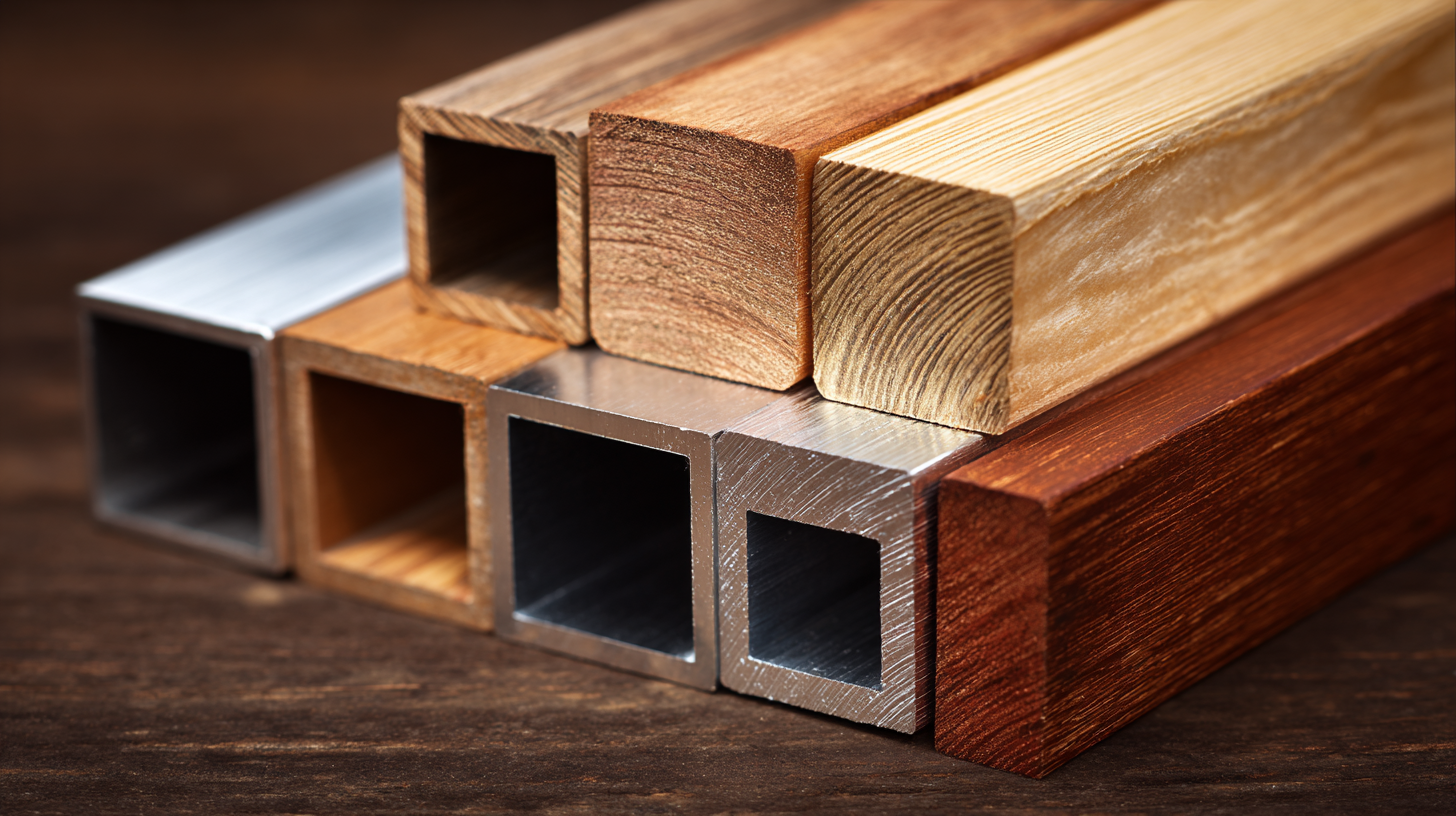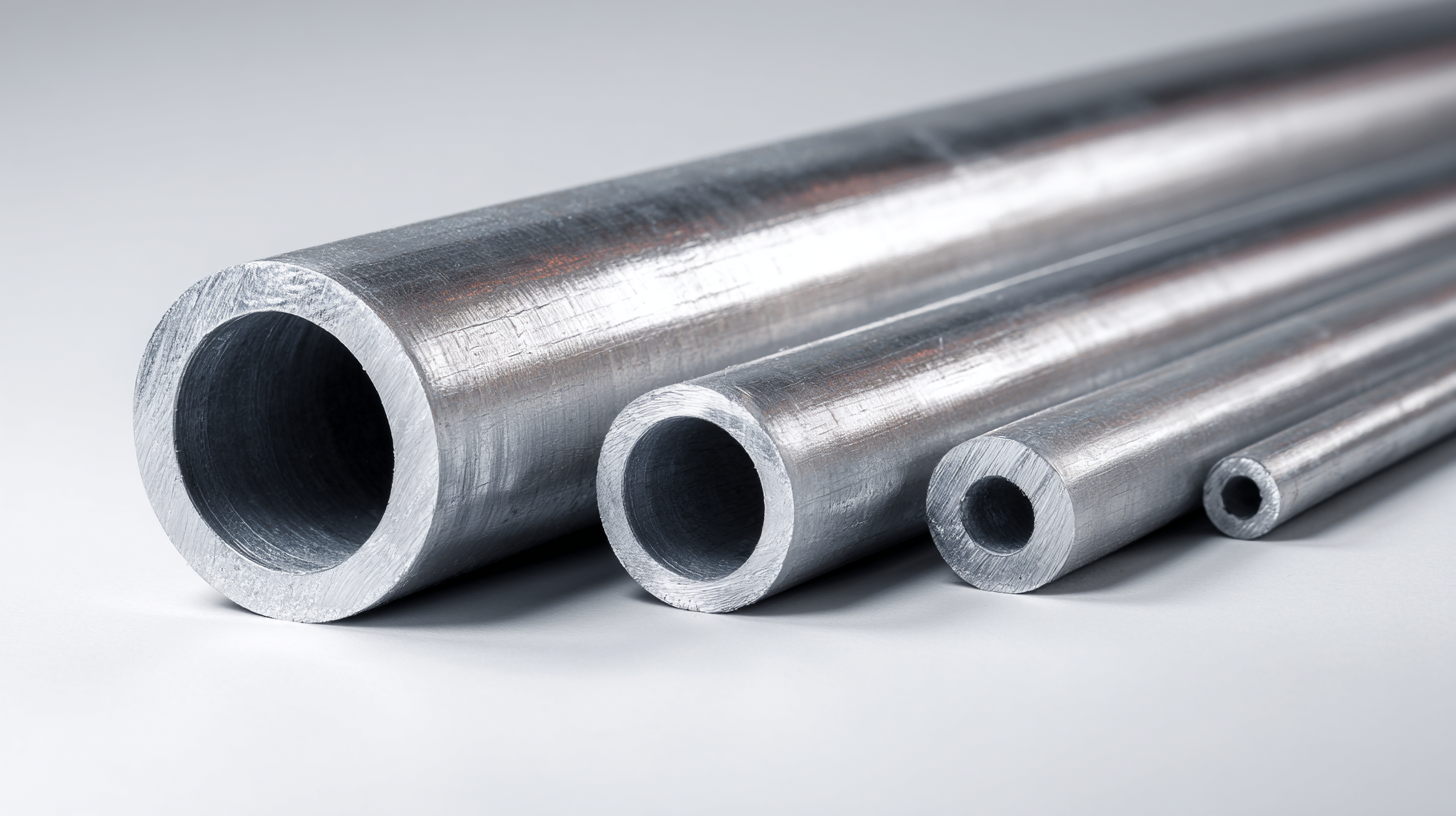In the pursuit of finding the optimal Wooden Aluminium Round Tube, it is essential to consider various factors that influence both functionality and aesthetics. The global market for aluminum products has witnessed substantial growth, projected to reach over $200 billion by 2025, driven largely by the increasing demand for lightweight materials across industries such as construction, automotive, and furniture manufacturing.
 Wooden aluminium combinations leverage the natural aesthetics of wood while offering the durability and lightweight nature of aluminum, making them ideal for diverse applications. According to industry reports, the fusion of these materials not only enhances structural integrity but also caters to the growing consumer preference for sustainable and eco-friendly solutions. As manufacturers aim to satisfy these evolving needs, understanding the intricacies of sourcing the best Wooden Aluminium Round Tube becomes increasingly vital for businesses looking to remain competitive in this dynamic market.
Wooden aluminium combinations leverage the natural aesthetics of wood while offering the durability and lightweight nature of aluminum, making them ideal for diverse applications. According to industry reports, the fusion of these materials not only enhances structural integrity but also caters to the growing consumer preference for sustainable and eco-friendly solutions. As manufacturers aim to satisfy these evolving needs, understanding the intricacies of sourcing the best Wooden Aluminium Round Tube becomes increasingly vital for businesses looking to remain competitive in this dynamic market.
In the realm of sourcing the ideal wooden aluminium round tube, innovative materials are reshaping how we approach construction and design. With a growing focus on sustainability, the introduction of advanced materials and production technologies offers not only enhanced performance but also environmentally friendly options. This trend underscores the importance of integrating these innovations into sourcing strategies, particularly as the building materials landscape evolves.

Recent developments have emphasized the impact of tariffs on imported materials, complicating the procurement process for manufacturers. The imposition of heightened tariffs on aluminum and steel may drive up costs for wooden aluminium round tubes, prompting stakeholders to consider alternative sourcing solutions or domestic manufacturing options. By prioritizing innovation in material selection and production processes, businesses can mitigate the effects of external economic pressures while maintaining quality and sustainability in their projects. As the industry navigates these challenges, embracing innovative materials becomes vital in securing a competitive edge.
The wood and aluminium industry is experiencing significant transformations, driven by sustainability and innovation. According to a recent report from Global Industry Analysts, the global market for wood and aluminium is projected to reach USD 197 billion by 2025, with a compound annual growth rate (CAGR) of 5.5%. This emerging trend is indicative of a growing consumer preference for eco-friendly materials and products that prioritize sustainability. Companies are increasingly investing in advanced technologies to optimize the sourcing and production of wooden aluminium round tubes, improving their strength-to-weight ratio while minimizing environmental impact.

In 2025, the integration of sustainable practices is expected to dominate the sector, with manufacturers focusing on responsibly sourced wood and recycled aluminium. The International Aluminium Institute reports that recycling aluminium can save up to 95% of the energy required to produce new aluminium, making it a crucial aspect of the industry’s evolution. As the demand for lightweight yet durable materials rises—especially in sectors such as construction and automotive—manufacturers will need to adopt innovative sourcing strategies that balance quality, cost, and sustainability to stay competitive in this dynamic market landscape.
When sourcing wooden aluminium round tubes, it's crucial to evaluate various best practices that can enhance your purchasing experience. First, understanding the specific requirements for your project is essential. This includes determining the desired dimensions, weight capacity, and the type of finish that suits your application. Communicating these specifications clearly to suppliers can help narrow down options and ensure that you are sourcing products that meet your needs.
Another key practice involves researching and selecting reliable suppliers. Look for manufacturers with a strong reputation in the industry, positive customer reviews, and a track record of delivering high-quality products. Establishing a good relationship with suppliers can also lead to better pricing and more flexible terms.
Finally, consider sustainability. Choosing suppliers that adhere to environmentally friendly practices not only benefits the planet but can also enhance your product's market appeal. By taking these factors into account, you can make informed decisions and source wooden aluminium round tubes that meet both quality standards and project requirements.
Sustainable sourcing of materials has become a critical focus in the production of eco-friendly products, particularly in the case of the wooden-aluminum composite tubes. According to a report by the Global Institute of Sustainable Manufacturing, the market for green materials is expected to grow at a CAGR of 8.3% from 2021 to 2028, highlighting the increasing demand for environmentally friendly alternatives. Sourcing these tubes sustainably involves careful consideration of both the wood and aluminum components. Ideally, the wood should be derived from certified sustainable forests, while the aluminum must be recycled to reduce the carbon footprint of the entire product.
Moreover, the integration of eco-friendly practices not only meets consumer demand but also adheres to regulatory standards aimed at minimizing environmental impact. The Environmental Protection Agency (EPA) reports that manufacturing processes that utilize recycled materials can reduce energy consumption by up to 70%. By prioritizing sustainable sourcing solutions, manufacturers can significantly lower overall emissions and contribute to resource conservation. Emphasizing the use of responsibly sourced materials aligns with the growing trend towards corporate social responsibility, fostering a positive brand image while meeting the criteria of environmentally conscious consumers.
When sourcing the ideal wooden aluminium round tube, it's essential to evaluate several key factors that can significantly impact your selection of suppliers. First and foremost, consider the quality of materials used in production. High-grade wood and aluminium not only enhance the durability of the tubes but also their aesthetic appeal. Inquire about the suppliers' sourcing practices to ensure they use sustainable and ethically sourced materials. This is not only important for the environment but can also add value to your final product.
Another crucial aspect to consider is the supplier's manufacturing capabilities and expertise. Look for suppliers with a proven track record in producing wooden aluminium tubes, as their experience can translate into superior craftsmanship and consistency in product quality. It’s also beneficial to check for any certifications or industry standards they adhere to, as this can be indicative of their commitment to quality and safety protocols. Lastly, assess their customer service and support—responsive suppliers who offer clear communication and after-sales support can create a smoother procurement process and foster a long-term partnership.
| Key Factor | Description | Importance | Evaluation Criteria |
|---|---|---|---|
| Material Quality | Assess the quality of wood and aluminium used in the tubes. | High | Customer reviews, certifications, sample testing. |
| Supplier Experience | Years in business and expertise in manufacturing tubes. | Medium | Years of operation, project portfolio. |
| Customization Options | Ability to customize dimensions and finishes based on needs. | High | Flexibility in orders, range of options offered. |
| Pricing | Affordability and competitiveness of pricing for bulk orders. | High | Price quotes, comparison with industry standards. |
| Delivery Time | Timeliness of order fulfillment and shipping. | Medium | Lead times, past delivery performance. |
| Customer Service | Quality of support before, during, and after sales. | High | Response times, issue resolution, availability. |
